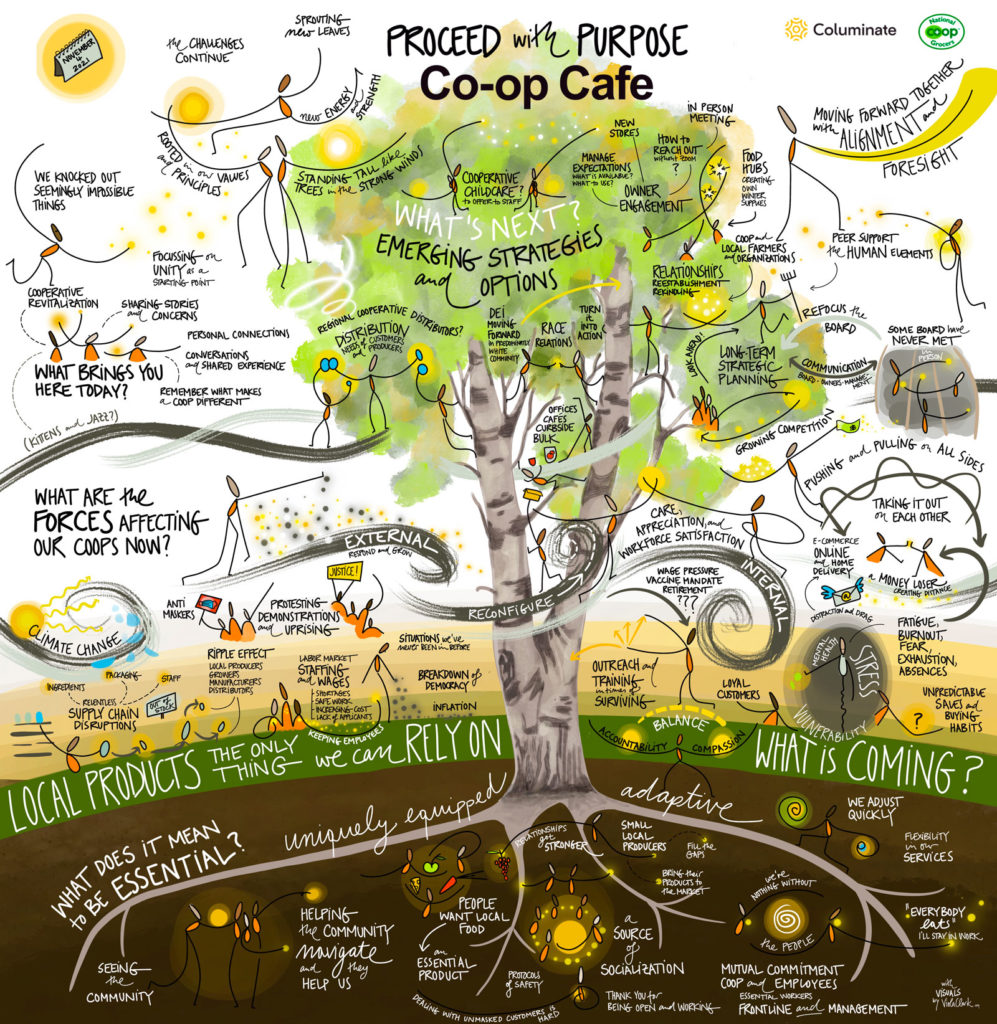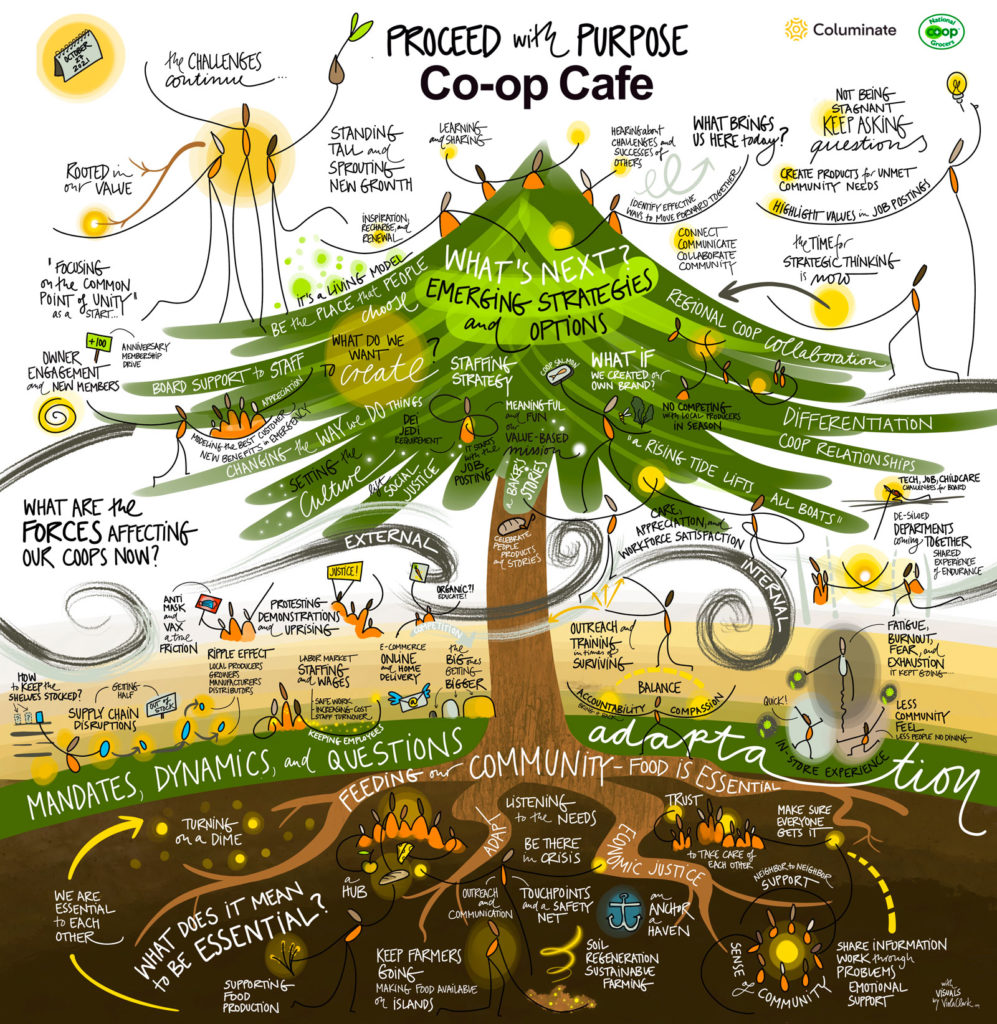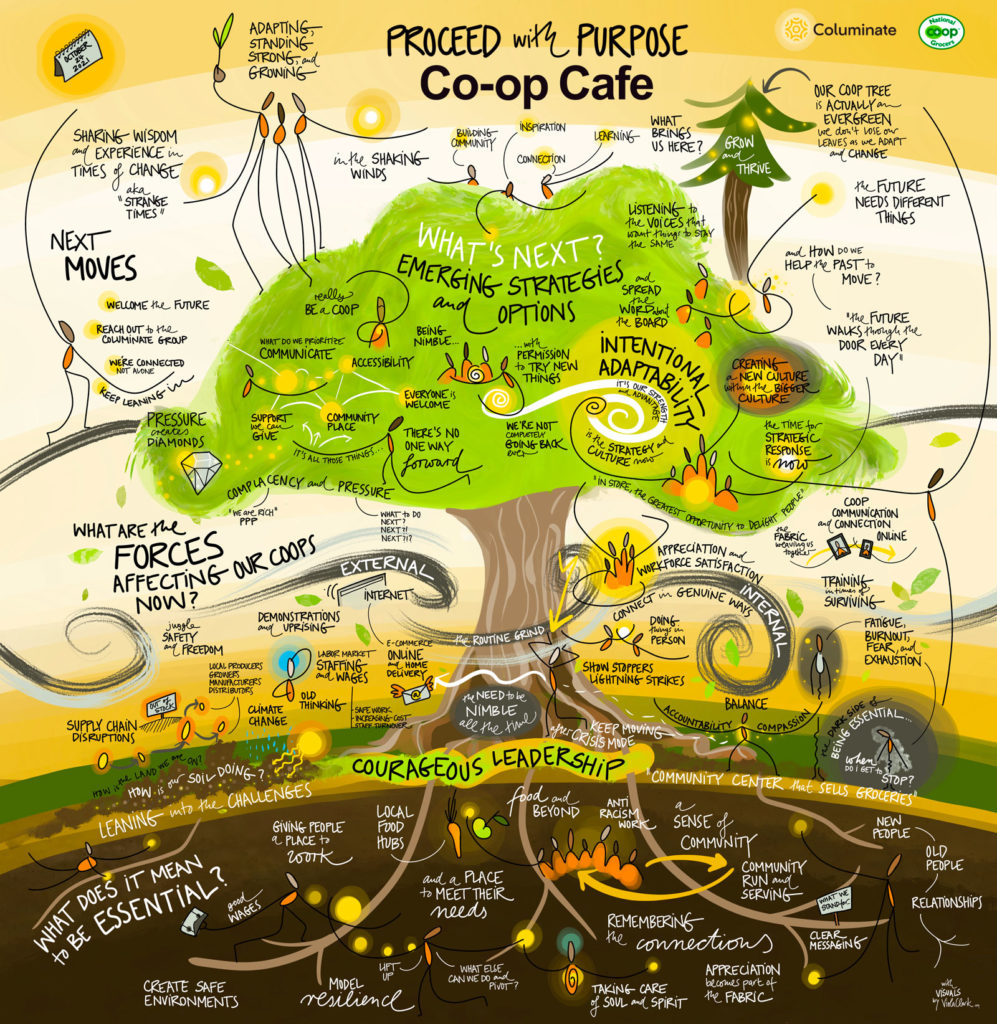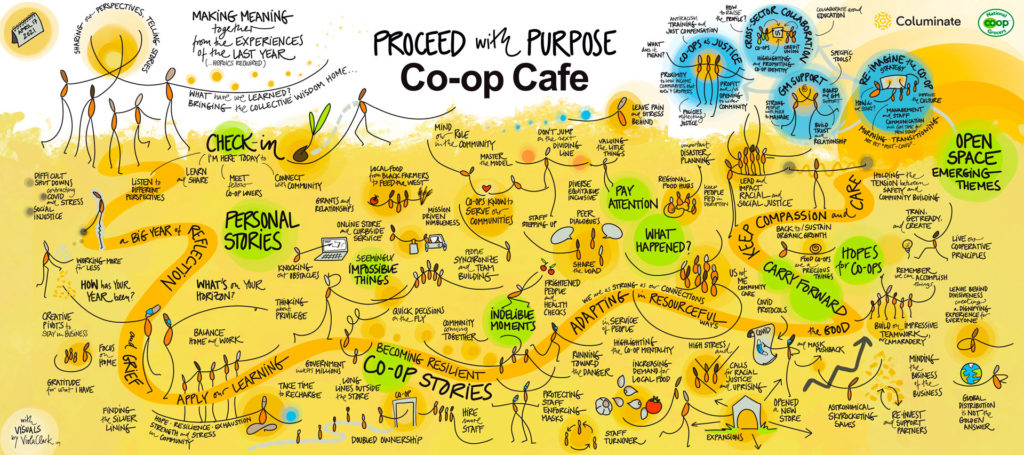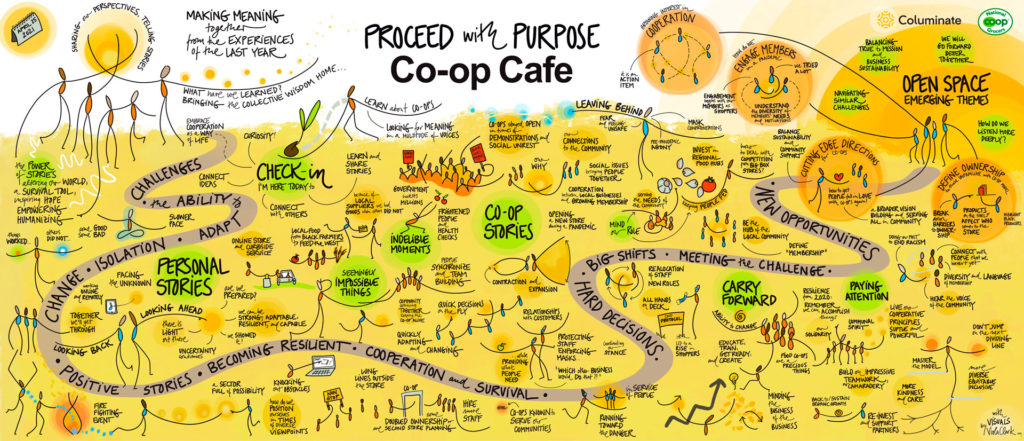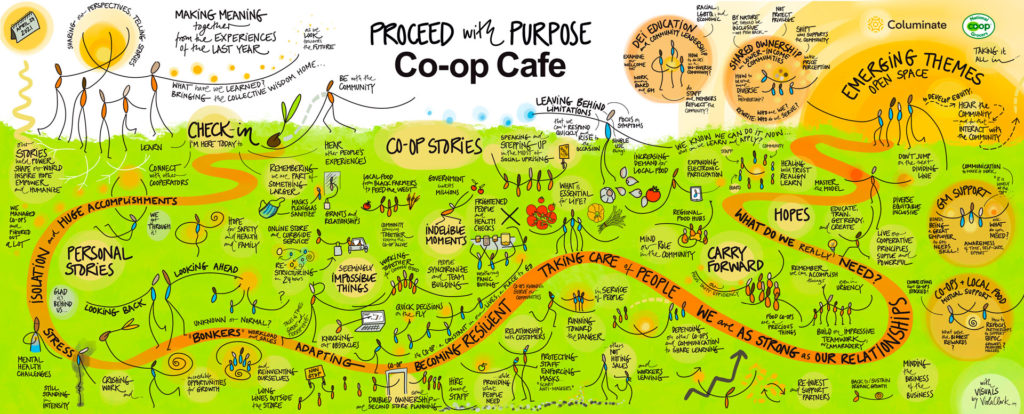For nearly a decade, the Columinate Co-op Cafe has been a way for workers, directors, consumer-owners, and leaders in the cooperative movement to gather, connect, learn, and tackle relevant issues. Although the Co-op Cafe looked a bit different in 2021, the event survived and, in some ways, even thrived in the face of adversity.
We sat down with Columinate’s “Good Governance Champion” Leslie Watson to discuss how the Cafe events went in 2021 and what we can look forward to in 2022. Watson has played a major role in designing the Co-op Cafe alongside Columinate Manager Mark Goehring. In 2020, she fully designed the in-person sessions but was only able to host one before the nation went into lockdown. As someone steeped in the cooperative world, from leadership development to governance culture building in co-ops large and small, she has a unique perspective on the event.
What is the Co-op Cafe and how did organizers adapt in 2021?
Traditionally, Co-op Cafes have followed the World Cafe method where participants are broken up into small working groups and given topics to discuss for an allotted time. When the time expires, all but one group member moves onto another group. The member that stays behind informs the new group what was discussed previously and the new group continues the conversation. After many rounds, the result is a complete conversation, exhausting the collective intelligence of the whole room. There is also a visual component, as participants are encouraged to record their conversations pictorially on paper tablecloths with markers.
Like nearly every other aspect of modern life, the pandemic dramatically changed the approach to the Co-op Cafe in 2021. The tables were replaced with breakout rooms, and what was once an all-day affair became a three-hour Zoom conference. There were aspects of the Cafe that were sacrificed by necessity, but the heart of the event, the community building, and the shared experience of congregating with fellow cooperators remained.
Why is the Co-op Cafe important?
“If you really believe, as I do, that there is a lot of value in people in a shared community coming together to think and consider and learn together, then the Co-op Cafe is a powerful, but subtle way of doing that work,” says Watson.
The Cafe has helped bridge the chasm between the operations of the cooperative enterprise and the governance responsibilities of the association. The broad questions that are posed help those that work at food cooperatives view the complexity of the system that they are supporting in a new light, offering multiple ways to approach problems.
Another key component of the Co-op Cafe evolution has been the supportive relationship that National Co+op Grocers (NCG) plays in the Cafes, who help form the conversations around the bigger picture of what is going on in the food cooperative sector. “It’s like a tapestry with a lot of little threads that come together, and the outcome is an unpredictable blanket,” Watson says of the contribution of NCG professionals over the years.
Are there opportunities that the virtual sessions offered that would not be possible otherwise?
“We have co-ops in very far-flung areas that don’t have the budgets to ever bring someone in-person. If we can make the invitation enticing and accessible enough so that the tiny little co-op in the foothills of wherever can be in conversation with the Twin Cities co-op people, that’s a real opportunity. We definitely should be able to build on that. Let’s glean the potential we can from that to be as welcoming as we can to everybody everywhere, regardless of budget.”
The virtual sessions in 2021 also allowed Watson to broaden the talent that she brought in to design the sessions, bringing in outside facilitators and collaborators to offer the most compelling virtual experience. Graphic facilitator Viola Tschendel Clark took on the classic World Cafe role of providing artistic representation, creating intricate visual maps that track the route of the conversations throughout the sessions in real-time. The product of her contribution is a beautiful tapestry of images that aptly captures the experience.
Were there themes of the sessions that surprised you?
“In the fall, we asked people the question of what it means to be essential. I loved the answers we received, and it set us up for the idea of, ‘What are the forces buffeting us?’ and that was actually more hopeful and empowering than it has been in other years.”
This year, conversations were rooted in an identity of essential workers providing an essential service to communities. “That realization has deepened the co-op experience.”
Co-op Cafe participant and Assistant Manager at Belfast Co-op, Annie Bussiere, said this year’s Co-op Cafe was the best virtual event she has ever attended.
“I have done two in-person cafes and was surprised by how much I love the virtual one,” Bussiere says. “I wept during the video portion when people were talking about their pandemic experiences because it felt so good to have community and to be seen.”
What are your thoughts on the Co-op Cafe in 2022?
“Responsibly finding a way for there to be some in-person, if possible, feels good.” Watson and the other organizers are sensitive to the public health concerns that are still present in our community nearly two years into this pandemic. “We know we’re committed to offering the Cafe next year. Right now, the conversation is around what is the possibility for a hybrid. How will we promote it? How will we design it so that it is attractive and possible to get a lot done in three hours? I think we were sensitive to the time constraints. Conversations takes time to unfold and three hours with a break is actually not a lot of time. If you go to an in-person Co-op Cafe event, there is no shyness about it taking a whole day. That’s what is necessary.”
Watson suggests that the 2022 Cafes may be hyper-regionally focused if they are to be in-person with a virtual element. “We felt really good about what we put together, and we are really optimistic that we’ll be able to make the value proposition really clear to people who choose to participate on Zoom, and hopefully we can incorporate some of it in person.”
Looking ahead to the coming year, let us all hope for even greater connections and opportunities for cooperation, learning, and growing together.
Many thanks to National Co+op Grocers for their support of the Co-op Cafe.
Visit the Co-op Cafe Harvest for resources, videos, and graphics from the 2021 series.
Have more questions?
Get in touch with one of our consultants.

